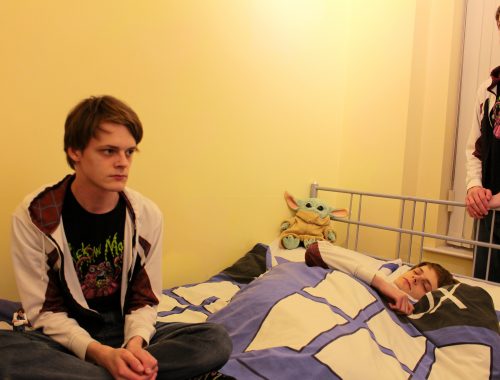The 11th Hour
Finding a placement for anyone in any field has lately been difficult on account of the lingering effects of the COVID-19 pandemic. I found it incredibly tough to persuade any potential placement providers to consider taking me on – my search for a placement going down to the wire. This blog post will reflect on my experience of obtaining a placement. I will use Borton’s (1970, summarised in Jasper 2013) model of reflection to structure my reflections on the process. I prefer this model to the others presented in the module because it is simple. The three-step structure will allow me to focus more broadly on the different aspects of my experience of the module so far, with more flexibility and without being tethered to rigid prompts.

The Initial Search
As I initially began to scour possible placement providers, I was aware that I needed to update my CV to include my most recent experience. To a certain extent, I understood that writing my CV meant selling myself to a potential employer, or in this case, a placement provider. However, after attempting to reach out to several possible providers, I found no success. This was partly a symptom of companies being unable to accommodate placements in the COVID climate. Still, I also feel that my approach could have been partly to blame – which included the quality of my CV.
While reflecting on the process of writing and sending out my CV, I realised that simply detailing my experience probably wasn’t apt. Equally, I found that my CV was potentially too general for any recipient to possibly gauge how I would be suitable for a specific role.
Enquiring about a placement is different from applying for a job. In the case of the latter, understanding the job role specified in the job ad can help me be prescriptive in writing my CV. In the case of a placement, on the other hand, I am to a certain extent “cold calling” a potential placement provider, and it can therefore be much more difficult to tailor my CV in a way that makes me compatible with a specific company, and therefore worth their while to accommodate me. As James Innes (2012) writes, ‘every job and every organisation is different, and every CV should therefore also be subtly different.’ This is something that I overlooked. My CV was too generic and didn’t sell my suitability. A level of naivety led me to ignore the level of modulation necessary in adapting a CV for each individual inquiry and, probably more broadly, the importance of efficiently demonstrating my suitability for the specific requirements of a placement role.
Looking forward, I will place more importance on carrying out the appropriate research in order to prescribe the most relevant evidence to convey my suitability to a potential role or employer.
Elsewhere, I felt that I struggled with the “selling” aspect of CV writing, or in other words, my capacity to detail the extent of my responsibilities in previous roles and also the skills I had previously demonstrated or acquired. As James Innes explains, it is ‘important to phrase your information in such a way as to sell yourself as effectively as possible.’ I generally find self-promotion awkward, and, looking back at my CV, I tended to downplay my achievements and involvement in activities.
As I look to improve my CV, I will also, therefore, try to communicate the importance and value of each experience or achievement, rather than treating them in an informational way. If I can reorient myself to consider my CV as more an advertisement selling a product (me), it may help me to negate the self-consciousness which inhibits me from declaring my suitability to a potential employer and making an impression. In line with what James Innes suggests, I will be more attentive to the kind of language I use, utilising positive adjectives and active verbs to demonstrate my skills and qualities.
Deadline Approaching
Having failed to secure a placement through “cold calling” potential placement providers, I began to rack my brain for a solution with the deadline fast approaching.
As a film student who plans to work in the film industry, I had previously sought experience in the industry. Last summer I took a job as an Art Department Assistant on a short film called Defrost, co-funded by NI Screen and Poli Productions. I really enjoyed working under Art Director Mark Lowry and felt that I had carried out my to a high quality. On the off-chance that he could help me out, I decided to reach out to Mark, explaining the predicament regarding my placement search. While he was not working at the time, so therefore unable to accommodate me, he was able to pass me on to someone who could potentially help. That person was Danny O’Regan, an executive producer at Poli Productions, who was immediately interested in accommodating me. My placement was secured in the 11th hour!

The process of obtaining my placement has made me more aware of the value of networking, which Georgina Gregory et al. (2007) define as ‘utilising others to promote yourself.’ Networking is important because, as Gregory et al. continue, ‘it allows you to present yourself in a much more personal way than a CV.’ A potential employer is more likely to hire someone if they have been recommended, or even better if they have already had a positive experience or rapport with that person.
As I look forward to starting my placement, I will of course aim to carry out my role with preparedness and professionalism. Having now reflected on the process of finding my placement, I will also make a concerted effort to socialise or “put myself out there” more. As well as building meaningful relationships, it is also an opportunity to “mine” those around me for possible contacts or advice, and to make an impression which could unlock future opportunities further down the line.
References
Gregory, G., Healy, R., Mazierska, E. (2007) Careers in media and film: the essential guide. Los Angeles: Sage.
Innes, J. (2012) The CV Book: Your Definitive Guide to Writing the Perfect CV. Harlow: Pearson Education.
Jasper, M. (2013) Beginning reflective practice. Melbourne & London: Cengage Learning.
You May Also Like

AAAH or (Why Tom sucks at selling himself)
25 November 2021
Feast vs Famine
26 November 2021
